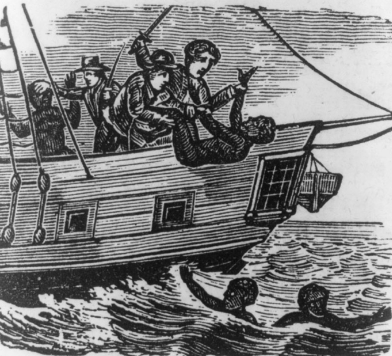A warm welcome!
Welcome to the new STS Helsinki Seminar Series!
The STS Helsinki Seminar Series is a newly founded seminar series by the STS Helsinki research collective. Our aim is to create a space for in-depth conversations about current research in Science and Technology Studies (STS). The topics cover a wide range of contemporary issues, such as climate change, the role of experts, medicine, genetics, gender, robotics or organic food. The seminars function as a platform for strengthening the STS community in Finland and bringing STS to new audiences. All scholars, students and audiences interested in the interaction between science, society and technology are welcome!
Seminar programme/Spring 2019
Venue: 4th floor seminar room, Helsinki Collegium of Advanced Studies (HCAS), Fabianinkatu 24 (except for April 26th)
27 February, 12.15-13.45
Helena Valve, senior researcher, Finnish Environment Institute
Analysing policy processes and power with STS
18 March, 12.15-13.45
Andrea Butcher, postdoctoral researcher, University of Helsinki
The challenge of tackling antimicrobial resistance in biosocially demanding settings: the case of protein production in South Asia
26 April, 12.15-13.45
Nik Brown, Professor of Sociology, York University
TBA
NB. Different location!
20 May, 12.15-13.45
Liina-Maija Quist, postdoctoral researcher, University of Helsinki
Epistemic practices of marine scientists examining climate change
Abstracts and biographies will be made available on the STS Helsinki blog.
Follow our updates on Twitter @stshelsinki
Abstract for 27 February
Analysing policy processes and power with STS
Scientific experiments and the role of experimentation in the generation of scientific evidence are classic themes within science and technology studies (STS). Research in the field has created understandings of the performative, yet contested role of test designs. Drawing from studies focusing on Baltic Sea protection, I propose that STS insights have much to offer for the analysis of governance. Power ceases to be just a property that can be used to explain policy outcomes. Moreover, the contested capacities evolve not only within, but also along the material (re)arrangements that indicate what is at issue and for whom.
Dr. Helena Valve works as a Senior Researcher at the Finnish Environment Institute. Her research focuses on the politics and performance of environmental policy and natural resource management. The studies make use of the insights provided by science and technology studies (STS), and aim to contribute to the development of methodologies that acknowledge the role of materialities and material arrangements for the practicing of governance and regulation.
For more information, please contact Kamilla Karhunmaa (kamilla.karhunmaa@helsinki.fi) or Karoliina Snell (karoliina.snell@helsinki.fi)
SKY doctoral course: How to Read your Research Materials (5 ECTs) University of Helsinki, 14-15 March 2019
This PhD course is a two-day workshop for current PhD students that focuses on gender, sexuality and feminism. It will be the first of a series of methodology oriented PhD workshops within the doctoral programme Gender, Culture and Society (SKY). In this workshop invited experts on different methods of reading and analyzing various types of research materials, together with the participating PhD candidates, will comment on, and offer readings of, samples of materials from their own and others’ PhD projects.
In this first workshop, Tuija Pulkkinen and Ann Phoenix, will provide in their lectures examples of their methods of reading the materials in their own research and will contextualize their methodological choices within the wide scope of possible, creative research practices that are currently burgeoning.
The idea of the course is to provide insights from experienced researchers into their research practices and to give hands on experience of dealing with the many different issues and problems that arise for anybody dealing with research materials. The aim is to help those attending to see how they can advance and complete their analyses and writing to high international standards.
The two workshop facilitators have long histories of research and writing in a wide area of feminist scholarship and gender studies, ranging from philosophical and historical analysis of concepts in texts, to applying psychological, sociological, political, and creative analytic insights to research materials. They will give talks that illustrate their chosen methods and lead discussion of student materials. Fieldwork notes, internet based materials, visual methods, literary or historical and other types of texts can be included. PhD projects within a wide multidisciplinary range of humanities, social sciences, pedagogical, theological, and law studies; work on feminist and queer theory, contemporary society and politics, social research and conceptual analysis are all welcome. The theoretical frames of the PhD projects will also be varied, building on research within the interdisciplinary areas of feminist and gender studies and including its intersections with postcolonial theory, queer theory and politics, disability studies, and critical animal studies.
The course is arranged by University of Helsinki Doctoral Programme Gender Culture and Society (SKY). It is open for applications from PhD students from all universities.
Applications with a max 100-words on the PhD project and it’s methodological challenges by 25th February 2019. Deadline for sending the deliverables: 7 March 2019.
Fill in the application and submit your abstract at: https://elomake.helsinki.fi/lomakkeet/96051/lomake.html
Services for Doctoral Education
HYMY Doctoral School in Humanities and Social Sciences
hymy-doc@helsinki.fi
SOVAKO winter school for PhD – Turku Wed 27th of March 2019
Call for papers to SOVAKO winter school for PhD students is now open. The event will take place one day before the start of the Westermarck Society’s annual sociology conference in Turku Wed 27th of March 2019. Instructions for applying below!
Social Network Effects of Falling Fertility, Urbanisation, and Migration – Tuesday 5th March at 4 pm to 6 pm Place: University of Helsink
Presentation: Tamás Dávid-Barrett: Social Network Effects of Falling Fertility, Urbanisation, and Migration
Time: Tuesday 5th March at 4 pm to 6 pm
Place: University of Helsinki: Unioninkatu 35, ground floor, seminar room sh 114
Tamás Dávid-Barrett is an evolutionary behavioural scientist, whose research asks what traits allow humans to live in large and culturally complex societies. He is especially interested in the architecture and regulation of social networks, and the evolutionary origins of social network building traits. Tamás is a professor at the Centro de Investigación de Complejidad Social at the Universidad del Desarollo in Santiago de Chile, teaches economics at Trinity College, University of Oxford, is affiliated with the Institute für Weltwirtschaft in Kiel, Germany, and Väestöliitto in Helsinki. Tamás recently finished his manuscript on the coming female millennium, entitled ‘Matriocracy’.
Welcome to listen and discuss, no preregistration required!
Open Moodle platform for seminar can be found here: https://moodle.helsinki.fi/course/view.php?id=31386
Edward Westermarck (1862-1939) is a founding father of Finnish sociology and one of the world’s first evolutionary sociologist whose scientific thinking was a century ahead of its time. Westermarck seminar gathers together researchers and students interested in evolutionary research from different disciplines. Cross-disciplinary seminar is open to all.
Contact:
Antti Tanskanen
Mirkka Danielsbacka
Conference on Ageing Men and Their Social Relationships Tue 26 March 12:15–16:30, Wed 27 March 9:00–12:15 University of Helsinki, Finland
You are warmly welcome to our lunch-to-lunch conference focusing on male gender and the ways social relationships are perceived and expressed in older men´s lives. This multidisciplinary conference is open to all disciplines, including, but not limited to, the social sciences, social and care work, gender studies, theology, law, and for local practitioners working with elderly men.
Drawing from newly published results and empirical findings of ongoing research projects, the invited conference presentations discuss the manifestations of older men’s social relationships in different contexts, using various scientific and methodological approaches. The presentations include the following themes:
- sense and loss of community in older mens lives
- older men’s leisure time communities
- negotiating ageing through generational intelligence
- loneliness and social isolation among older single men
- autonomy within caring relations
- older men and grief
- visual research tools to study relationality
Registration is now open and will be closed on 20 March, 2019. There is no registration fee. However, there is only space for 60 participants, so reserve your place today! To find more information and reserve your spot, see our website.
|
Ageing Men and Their Social Relationships |
We look forward to seeing you at the conference!
Marjaana Seppänen, Professor of Social Work
Suvi-Maria Saarelainen, DTh, Postdoctoral Researcher in Social Work
Anna Mäki-Petäjä-Leinonen, Senior Lecturer of Elder Law
Auli Vähäkangas, Professor in Practical Theology
Sofia Sarivaara, M.Soc.Sci, Conference Secretary
Contact information: agedmen2019@gmail.com
INTERNATIONAL CONFERENCE august 28-30 2019 Art in Education – Building Partnerships with Artists, Schools, Young People and Communities
The objective of the conference is to establish an interdisciplinary arena for dialogue and knowledge exchange about the significance of art in school. The target groups for the conference are practitioners within the field of education as well as research and education staff within universities and university colleges.
Keynote speakers: Tia DeNora and Pat Thomson.
Conference web page:
https://www.oslomet.no/om/arrangement/art-in-education
Call for papers:
https://www.oslomet.no/om/arrangement/art-in-education/call-for-papers-art-in-education
The abstract deadline is February 18th.
Organised by: OsloMet and Kulturtanken – Arts for Young Audiences Norway
Hybrid and mobile protections: migration and humanitarianism across North-East Africa and the Central Mediterranean, 8.2.2019, 13:00-14:00 – Helsinki
Dear all,
This Friday, Elisa Pascucci (University of Helsinki) will talk about Hybrid and mobile protections: migration and humanitarianism across North-East Africa and the Central Mediterranean in the EuroStorie research seminar.
The seminar is open to all without registration.
When: 8.2.2019, 13:00-14:00.
Where: Meeting room 229, Psychologicum (Siltavuorenpenger 1 A, 00170 Helsinki)
https://www.helsinki.fi/en/news/society-economy/eurostorie-research-seminar-elisa-pascucci-8.2.2019
Masterclass on 11th February from 9:15 to 11:45, entitled “Paraethnographic Film: Multimodal Participant Observation as Process and Product”.
To PhD students interested in virtual worlds, ethnographic film, digital methodologies:
Tom Boellstorff (University of California at Irvine) is coming to Helsinki next week. He will be giving a Masterclass on 11thFebruary from 9:15 to 11:45, entitled “Paraethnographic Film: Multimodal Participant Observation as Process and Product”. Please register if you would like to attend: https://elomake.helsinki.fi/lomakkeet/90985/lomake.html – there are only two places left for this event, as the maximum number of participants is 10.
Description: How can ethnographic knowledge production beyond the written text act as data collection and concept building? To explore this question, I will screen and then discuss the film Our Digital Selves: My Avatar is Me, a documentary by Bernhard Drax. This film chronicles my research on disability and virtual worlds, but the filmmaker was given creative control: my collaborator and I appear in the film and helped guide its themes, but made no decisions regarding the film’s final content. The filmmaker’s extensive work included meeting interlocutors in the physical world that the researchers met only online, as well as crafting a narrative about disability and virtual embodiment that comments on rather than replicates the scholarly narrative. In turn, participation in the film shaped my own substantive conclusions and theoretical interventions. How does this experience differ (or not) from other forms of ethnographic film, which always involve multiple forms of collaboration? How can such work link in new ways the phases of research design, “writing up,” and dissemination? What might this mean for anthropological futures, including but not limited to digital anthropology itself?
Also: Tom Boellstorff is available for private meetings with individual students on the afternoon of February 7th and the morning of the 8th February. Contact Sarah Green (sarah.green@helsinki.fi if you would like to book a time).
Best wishes,
Sarah
“The Racial Capitalism of Blockchain: Alternative Markets for Human-Computer Flourishing or Computational Slavery?”
Next week’s seminar is fast approaching: Bill Maurer (UC Irvine), will be presenting his paper,
“The Racial Capitalism of Blockchain: Alternative Markets for Human-Computer Flourishing or Computational Slavery?”
Friday, 8th February, Unioninkatu 35, Room 113/4, 2:15 – 3:45




